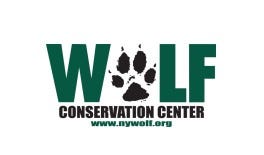Havens Nook charity support!
Havens Nook doesn’t just want to nurture the project ecosystem but that of the world. So as part of our charity outreach it seems fitting to start with one of the most misunderstood and vital animals. The wolf.

Wolves used to roam most of the northern hemisphere but were nearly on the brink of extinction due to habitat destruction and methodical eradication and extermination through hunting and trapping practices. Once feared as dangerous to livestock and possible human attack, we have now come to understand the important balance that is met when this native species is allowed to thrive in natural environments. Wolves are a keystone species and without them a destructive domino effect occurs that is more far reaching than was ever imagined. Their presence contributes greatly to the balance, structure and health of the lands they roam along with the other animals and plants that share these habitats.
The wolf is a social animal existing alone or in packs and develops such strong social bonds they have been known to sacrifice themselves for the survival of the family unit. Thanks to responsible legislation, protection and reintroduction over the last 40 years, wild wolves can be found in small numbers throughout North America, Mexico and Europe. Red wolves are the most endangered wolf in North America. Currently, there are fewer than 50 red wolves in the wild and approximately 200 in captive programs across the country.

This short video shows the beautiful equilibrium and positive impact that can be achieved when nature is allowed to exist as intended.
Havens Nook members have begun adoptions with Wolf Conservation Center in Salem, New York.
nywolf.org teaches people about wolves, their relationship to the environment and the human role in protecting their future.
Founded by Hélène Grimaud in 1999, the Wolf Conservation Center (WCC) is a 501(c)(3) not-for-profit environmental education organization working to protect and preserve wolves in North America through science-based education, advocacy, and participation in the federal recovery and release programs for two critically endangered wolf species — the Mexican gray wolf and red wolf. Through wolves, the WCC teaches the broader message of conservation, ecological balance, and personal responsibility for improved human stewardship of our World.
To best prepare the critically endangered wolves who are candidates for wild-release, the center’s 21 Mexican gray wolves and 12 red wolves reside off exhibit within the WCC’s Endangered Species Facility. The WCC’s three ‘ambassador wolves’ reside on exhibit where they help teach the public about wolves and their vital role in the environment.

MEXICAN GRAY WOLVES
The Mexican gray wolf (Canis lupus baileyi) or “lobo” is the most genetically distinct lineage of gray wolves in the Western Hemisphere, and one of the most endangered mammals in North America. By the mid-1980s, hunting, trapping, and poisoning caused the extinction of lobos in the wild, with only a handful remaining in captivity. In 1998 the wolves were reintroduced into the wild as part of a federal reintroduction program under the Endangered Species Act. Today in the U.S., there is a single wild population of 186 individuals — a 14% increase from the 163 counted at the end of 2019.

RED WOLVES
The red wolf (Canis rufus) is one of the world’s most endangered wild canids. Once common throughout the southeastern United States, red wolf populations were decimated by the 1960s due to intensive predator control programs and loss of habitat. A remnant population of red wolves was found along the Gulf coast of Texas and Louisiana. After being declared an endangered species in 1973, efforts were initiated to locate and capture as many wild red wolves as possible.
Of the 17 remaining wolves captured by biologists, 14 became the founders of a successful captive breeding program. Consequently, the United States Fish and Wildlife Service (USFWS) declared red wolves extinct in the wild in 1980. As of May 2021, there is a single wild population consisting of only 18 known individuals.
As you can see, it’s way past time to start supporting the wolves and many causes are just as urgent. As Havens Nook looks forward, we plan to create a multi-sig donation wallet for easy donation that will be used toward this and other causes we have yet to discover.
For now, please visit https://nywolf.org/adopt-a-wolf/ to learn about and support the wolves. We only get one planet — let’s all take part in making a lasting impact on it’s most precious resources together.

Resources:
Website: https://havensnook.io
Telegram: https://t.me/havensnook
Twitter: https://twitter.com/Havens_Nook
Medium https://medium.com/@havensnook
Github: https://github.com/Havensnook
